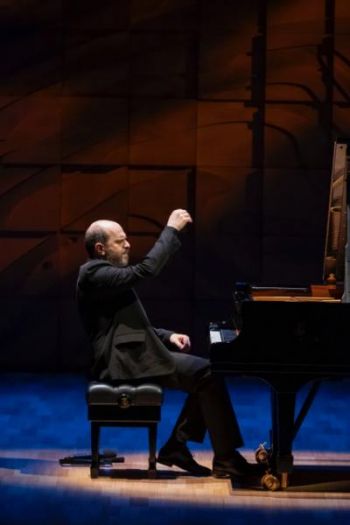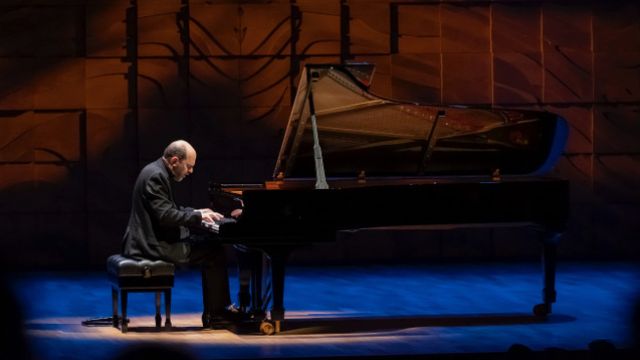Kirill Gerstein The Art of the Impossible
There is nothing better on a cold Winter’s night than a piano recital at the Adelaide Town Hall by a superstar of the keyboard, and who better than the amazing Kirill Gerstein!
Gerstein has rapidly earned his place in classical music’s highest ranks. His early training and experience in jazz have contributed to his interpretive style, creating a dynamic and intelligent approach that distinguishes his playing.
He begins his musical feast with the Polonaise-Fantaisie in A-flat major, Op. 61 by Frederic Chopin. Famous for its harmonic complexity and intricate form, Gerstein imbues the piece with a plaintive earnestness that lifts it to a new level.
Brad Mehldau’s Après Fauré No. 3: Nocturne is a clever contrast to the Chopin. Mehldau has a deep fascination for the formal architecture of music, and it informs everything he plays. Gerstein’s playing highlights the dark, discordant elements in Mehldau’s pieces, which are filled with percussive, searching music that underscores how Fauré’s work anticipated jazz.
 Mehldau is immediately followed by Gabriel Faure’s Nocturne No. 13 in B minor, Op. 119. This is Faure’s last composition filled with a feeling of regret, with an angry middle section rising to a magnificent climax. Gerstein handles the luxurious chord structure with ease, giving the piece an almost childlike simplicity.
Mehldau is immediately followed by Gabriel Faure’s Nocturne No. 13 in B minor, Op. 119. This is Faure’s last composition filled with a feeling of regret, with an angry middle section rising to a magnificent climax. Gerstein handles the luxurious chord structure with ease, giving the piece an almost childlike simplicity.
Francis Poulenc’s Three Intermezzi, FP71/118 are an interesting choice to follow Mehldau. Poulenc is well known for his melodic simplicity, harmonies with lush dissonances, and a sense of irony and wit. Gerstein adds his own contemplative feel making the piece almost a reverie.
The Polonaise in E major, S. 223 No. 2 By Franz Liszt is well known for its virtuosity and ‘fireworks’. It takes us to the 19th century salons of Europe with Liszt playing for Kings and Queens. A difficult piece for experienced pianists, Gerstein seems to revel in its complexity and make it look like child’s play.
He opens his second half with Frederic Chopin’s Fantaisie in F minor, Op. 4. From Chopin's letters it is known that he used the name "fantasy" to show some sort of freedom from rules and give a Romantic expression. Frédéric Chopin continued the tradition of a self-contained movement in his Fantaisie. This Fantaisie is one of Chopin's longest pieces and is considered one of his greatest works which requires dazzling technique. Gerstein does not disappoint!
For me, one of the highlights of the evening in the evening was Liza Lim’s Transcendental Etude (2023). Lim says she hopes to capture a “tearing up” of time in this piece, and in the visceral, almost silent moments that Gerstein exquisitely plays, punctuated by a ringing through of a central note, she achieved it. This is a moving piece of music, and I adored it, but it was obvious that some of the audience did not share my admiration.
Gerstein then returns to the piano to complete his performance with a dazzling rendering of Robert Schumann’s Carnival of Vienna, Op 26 which calls on every facet of his impressive virtuosity.
As one of his two encores, Gerstein chose the Liebesleid by Fritz Kreisler, transcribed by Sergei Rachmaninoff, a joyous, ebullient choice to end a perfect evening.
Kirill Gerstein The Art of the Impossible is an audience with a Master of his craft and a totally delicious performance!
Barry Hill OAM
Subscribe to our E-Newsletter, buy our latest print edition or find a Performing Arts book at Book Nook.

